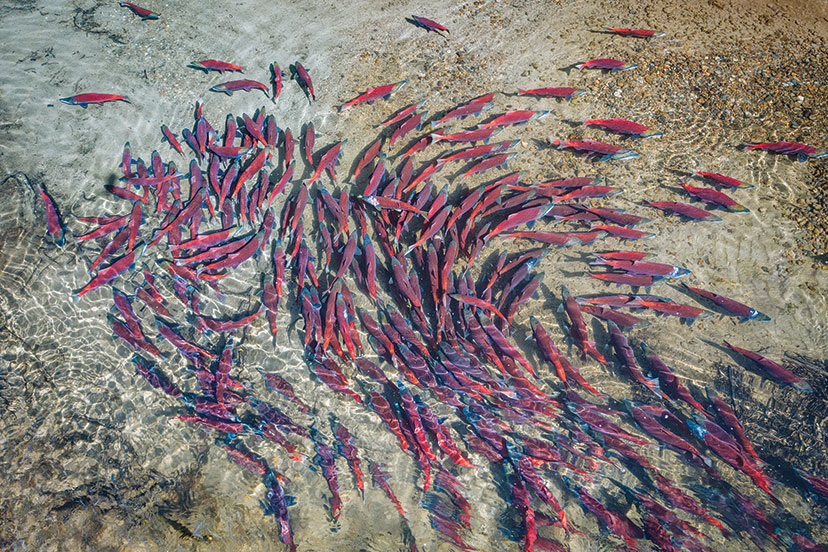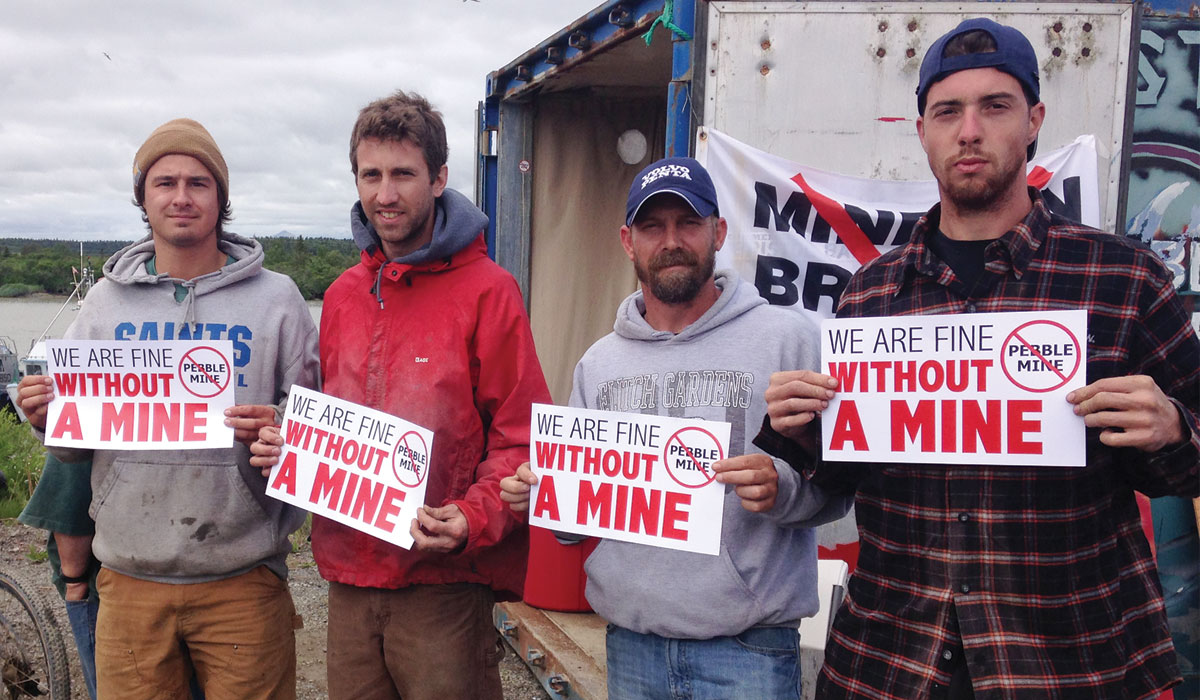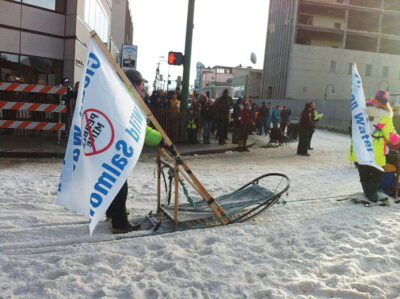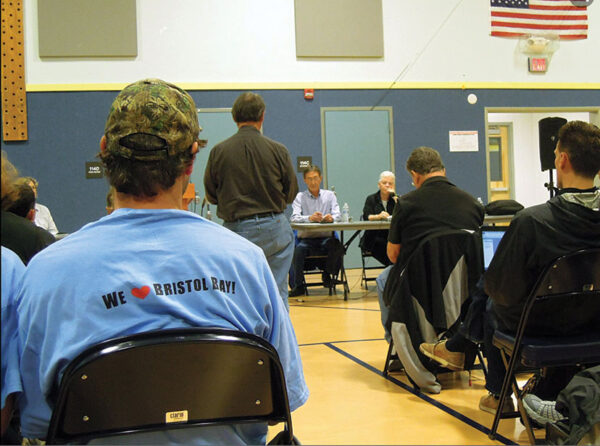
Sockeye salmon gather in the Koktuli River, one of the watersheds draining from the proposed Pebble mine location. © Colin Arisman
The world’s greatest sockeye salmon runs granted new protection under the Clean Water Act.
Story by Meghan Barker
Alaska Tribes, anglers and hunters, commercial fishermen, and thousands of other businesses and advocates are celebrating a huge milestone in conserving Bristol Bay’s incredible fisheries. After nearly 13 years of tribal consultation, unwavering public input, and scientific review, the Environmental Protection Agency (EPA) has finalized Clean Water Act 404(c) safeguards for the rivers and waters near the Pebble mining deposit.
These protections now safeguard the world’s greatest sockeye salmon fishery, trophy rainbow trout populations, and robust big-game populations. The Clean Water Act will help ensure a more secure future for the countless people who depend on clean water and healthy habitat in Bristol Bay, including the region’s indigenous peoples who have lived off salmon for thousands of years, and the robust commercial fishing, sportfishing, and tourism industries that drive the region’s economy.
The move effectively blocks development of the long-proposed Pebble mine atop one of the world’s largest gold and copper deposits by restricting the disposal of mine waste in the watershed.
While there is still work to do, we celebrate with all of you who helped with this major step in the effort to obtain durable safeguards for Bristol Bay. This has been a long-fought effort made possible by local people advocating for their local resources, along with advocates nationwide who know just how special Bristol Bay is. This win belongs to each person who took action, signed a comment card, showed up at a hearing, wrote to their decision makers, and did so much more to get to where we are today.

Commercial fishermen in Dillingham show their opposition to Pebble in 2016. © Trout Unlimited
Tens of thousands of advocates spoke up for Bristol Bay as part of Trout Unlimited’s efforts. Many local fishing lodges and guides worked to educate their clients on the importance of protecting this special place. Business owners from large, national brands to local fly shops helped spread the word. “No Pebble mine” stickers can be seen on water bottles, laptops and cars around the world. The outpouring of support from the sportfishing community has been incredible and was vital in helping to secure these protections.

Monica Zappa shows her support for Clean Water Act safeguards during the 2014 Iditarod dog-mushing race. © Trout Unlimited
The work to establish Clean Water Act 404(c) safeguards in Bristol Bay began in 2010 at the request of local tribes, sportfishing groups and commercial fishermen opposed to the proposed Pebble mine. The EPA conducted years of scientific analysis, including a rigorous peer-review process, and sought public input before sharing proposed mining restrictions in 2014. Lawsuits brought by the Pebble Limited Partnership delayed the process until 2019, when the EPA suddenly and illegally withdrew the proposal.
Trout Unlimited (TU) sued the EPA and in October 2021, an appeals court sided with TU. The ruling put the proposed protections back in place and required the EPA to review and update its earlier work.
In spring 2022, the EPA issued revised proposed protections. A public comment period coincided with the opening of the Bristol Bay commercial fishery, and as salmon surged into local streams returning to their spawning grounds in the headwaters of the region, comments flooded into the EPA. Over a half million comments of support were submitted. Record numbers were submitted from Bristol Bay residents and Alaskans, who have been unwaveringly clear throughout the seven comment periods—these protections were needed and wanted.

250 people in Dillingham showed up to greet former EPA Administrator Gina McCarthy in 2013 in support of Clean Water Act safeguards for Bristol Bay. © Trout Unlimited
The EPA has the authority and responsibility under section 404(c) of the Clean Water Act to restrict, prohibit, or deny mine waste discharge in areas where special water resources are at risk. In the 50-year history of the Clean Water Act, the EPA has used this authority 13 times. Reserved for truly special places that are at great risk, Bristol Bay will be the 14th time EPA has relied on 404(c) protections.
Pebble Limited Partnership and its allies have vowed to challenge the move in court. Trout Unlimited is committed to ensuring that safeguards for Bristol Bay are maintained.
While these protections are another important layer of safeguards that diminish the immediate threat of proposed mining of the Pebble deposit, the region and its fish, traditions and jobs won’t be completely safe until we ensure that large-scale mining cannot jeopardize fish and wildlife throughout the watershed. We will continue to advocate for conservation measures that support the people, fish and fish-based industries of the region.
Stay tuned for what comes next and we hope you’ll stick with us in the next chapter of work for Bristol Bay.
Trout Unlimited’s mission is to protect, reconnect and restore North America’s coldwater fisheries and their watersheds. Learn about our work in Alaska at home.tu.org/tu-programs/alaska. Meghan Barker is the Bristol Bay Organizer for Trout Unlimited.
